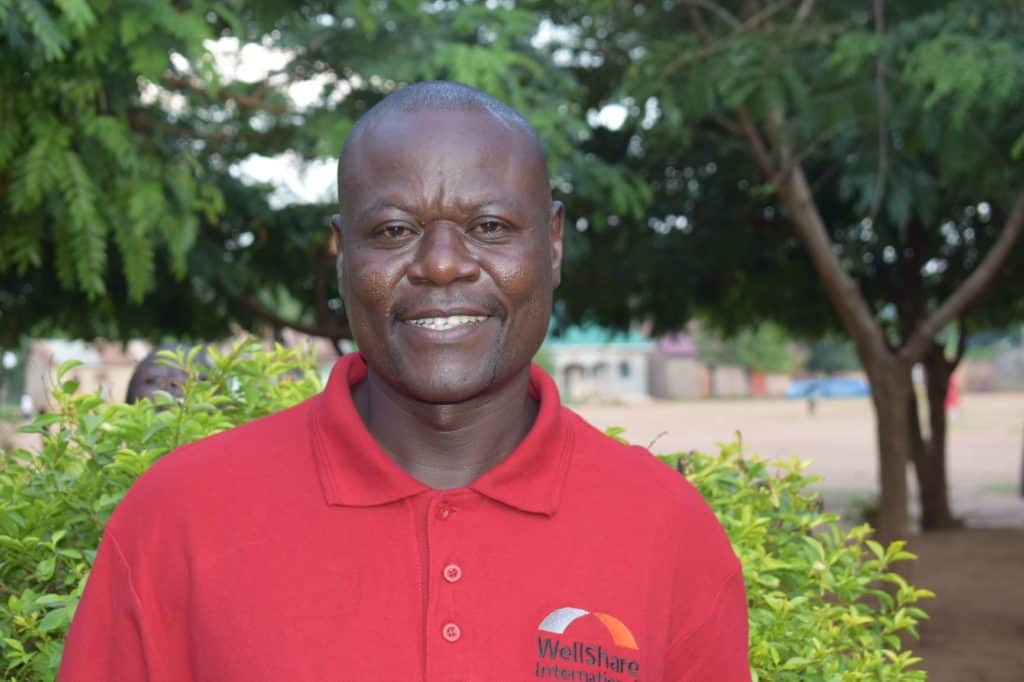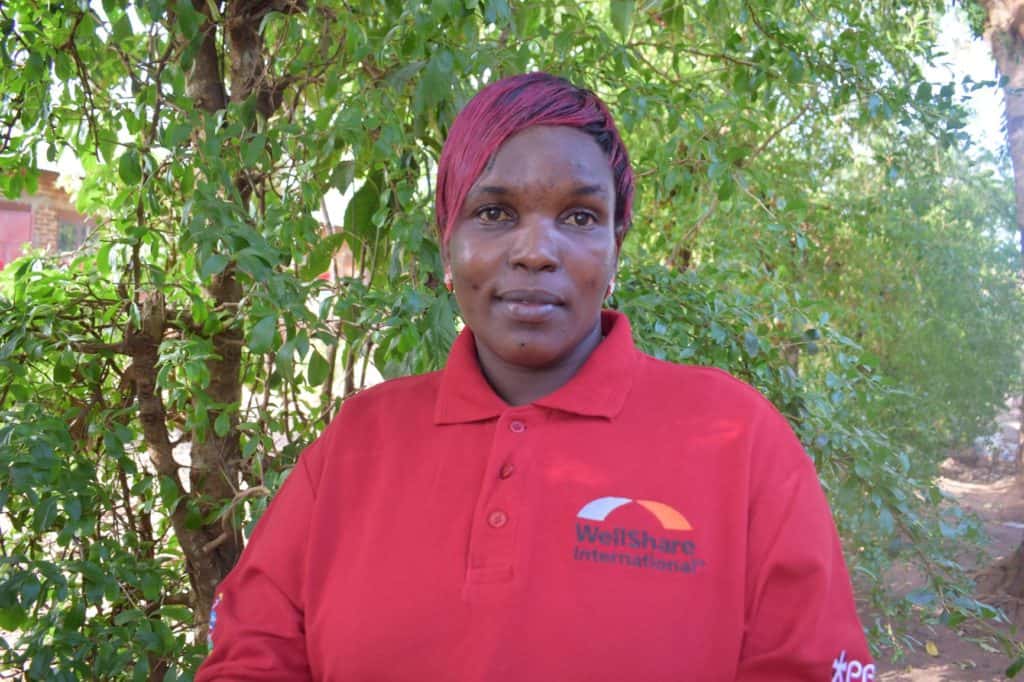A New and Convenient Way for Ugandan Women to Control their Fertility Saves Time for Community Health Workers
April 9th, 2019 | news
WellShare International is piloting an important contraception initiative in six sub-counties of Iganga and Bugweri Districts, Uganda. In July 2018, 70 village health team (VHT) members and 12 health workers were trained to teach clients to self-inject subcutaneously administered depot medroxyprogesterone acetate (DMPA-SC). The work is funded through a grant by the Advancing Partners & Communities (APC) project, led by JSI Research & Training Institute, Inc. with partner FHI 360.
VHTs are volunteers who provide services to the community without being paid. They are attached to health centers and supervised by health workers.
Two VHTs talked with WellShare about how self-injection has affected family planning services in their communities.

Wilberforce Miti of Nabitende-Bukose Zone in Nambale Subcounty has been a VHT for seven years. He became a VHT because he wanted to serve his community and because “I am very well-known and people look up to me.”
WellShare first trained Wilberforce to provide DMPA-SC in 2014. His clients like self-injection because they no longer have to hide their activity from their husbands to seek a VHT to inject for them; they administer the contraception discreetly in their own homes.
But not all women hide from their husbands; Wilberforce notes that some men are glad that their wives have the skill to inject themselves, and are happy to save money on transport and time that used to be spent traveling to VHTs or often-distant health facility for family planning methods, except when they need to re-stock.
Wilberforce’s only challenge is that some clients are afraid to self-inject so still come to him for injections. While Wilberforce doesn’t mind, he notes that “This takes time away from seeing new clients and doing personal work.”

Joyce Nambozo is a VHT in Kasokoso South, Iganga Central Division, Iganga Municipality. Joyce became a VHT more than 15 years ago because “I saw that many community members were ignorant about available ways of planning for their children and were giving birth annually almost.”
Joyce learned about DMPA-SC self-injection as part of a broader family planning method mix training in May 2018. She also learned to keep records using client registers; request stocks from the health facility; dispose sharps safely; and good personal hygiene skills.
“During the practical sessions at the training center, we injected condoms filled with salt. Later we went to the nearby health facility and injected clients under the supervision of trained staff. I quickly became competent and got my package of supplies to teach clients to self-inject. Then I went to spread the gospel of family planning.”
Joyce said that her clients like that the DMPA-SC needle is small, and injection is painless, unlike intramuscular DMPA. Joyce has also counseled and changed the minds of men who did not want their spouses to use family planning. Because of this, some of her clients do not have to hide their DMPA-SC use because they fear violence from their partners. Now that they understand that family planning can help them space their children, these men are happy that their wives can self-inject.
For Joyce, the biggest benefit of DMPA-SC self-injection may be the time it saves her.
“I am able to participate in local savings and credit association activities, I reach out to more clients, and now I am more than a VHT; I’m a trainer, too. I even train health workers who lack knowledge of DMPA-SC.”
One challenge that Joyce mentions is that “I have to account for how I use the units I receive. So when clients have a hard time learning to self-inject and end up spoiling units of DMPA-SC…I take the spoiled units back to the health facility when I submit monthly reports.”
But the benefits far outweigh the challenges. Joyce says that in addition to reducing people’s reliance on VHTs and health workers, the new skill has turned users into advocates. Joyce’s clients tell friends about DMPA-SC self-injection, which helps Joyce get more people into family planning and other critical health services. “I live in a place with many people. Self-injection means that I no longer exhaust myself giving the same person the same treatment over and over again.”
We strive to build lasting relationships to produce better health outcomes for all.